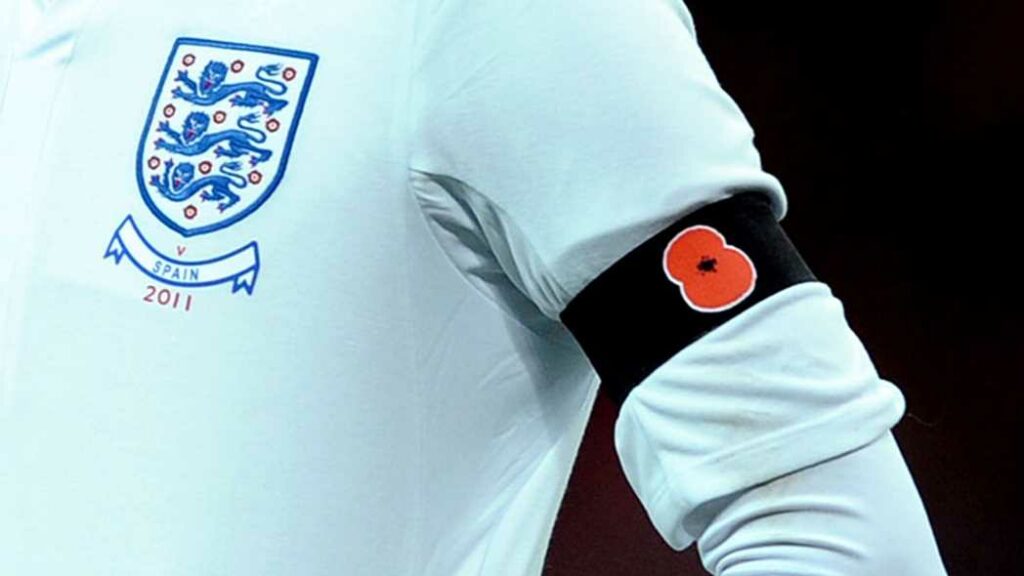FIFA’s modified policy on political symbols is an improvement, but still leaves plenty of room for controversy

FIFA is known for making awful decisions. There’s no need to chronicle them; they all rush to the brain instantly upon the mentioned of the federation. Yet, somehow, reports are suggesting that FIFA might have gotten something right—or almost, anyway.
First, let’s focus on the positives. According to reports, FIFA is set to change a blanket ban on political “slogans, statements, or images,” replacing it with a ban on more specific violations. This is reportedly in response to the infamous poppy ban of last year, as one of the provisions allows the usage of certain symbols should opposing teams approve it, per the BBC. In the case of England and Germany, who are set to face off in November at Wembley, the Germans have approved of the poppy presence. Additionally, the BBC report says FIFA will prohibit political symbols, defined as:
- The commemoration of any living or dead person
- Political parties or groups
- Any local or national government
- Discriminatory organisations
- Any group whose aims/actions would offend a notable number of people
- Any specific political act/event
Credit where it is due, FIFA managed to put some well thought out and necessary definitions of banned political symbols. Prohibiting the participation of political parties, government organizations, and discriminatory groups is definitely a good place to start when getting more specific about what exactly does not belong at a match.
That being said, FIFA has still left some ambiguity in their new definitions. While most of the above definitions are fairly specific, banning “any group whose aims/actions would offend a notable number of people” creates a bit of a tricky situation.
This could be in reference to the poppy situation, in which banning it offended “a notable number of people,” namely a sizeable population of Brits, and perhaps that makes the judgment acceptable, to a certain extent. It seems to work hand in hand with the rule that allows the opposing team to approve a possibly controversial symbol, as football associations around the world hold the responsibility of trying not to offend “a notable number of people,” among their other duties.
That being said, leaving a little bit of wiggle room to interpret rules sounds like it could backfire. For starters, “a notable number of people” could deem the FIFA logo a political symbols that offends them, which would make for a hilarious scenario. (Of course, FIFA would probably never agree with that opinion.)
In all seriousness, though, having FIFA make judgment calls that are morally correct really does not seem possible. It is FIFA, after all, that is going ahead with plans to host a World Cup in Qatar despite the many human rights violations committed in the process of getting the nation ready to host the tournament in five years’ time. Clearly, the people in charge do not have the best judgment. By the way, neither do those at the head of FIFA’s member nations, who frequently demonstrate their own bad judgment, with the English FA being only the latest example after mishandling the hiring and firing of Mark Sampson.
That is to assume FIFA will even follow through on any such rules. As of 2013, the FIFA Statutes state that “[d]iscrimination of any kind against a country, private person or group of people on account of ethnic origin, gender, language, religion, politics or any other reason is strictly prohibited and punishable by suspension or expulsion.” While they’ve dropped some fine here and there in the years since, including recently fining Germany and the Czech Republic for the Nazi chants heard at a recent World Cup qualifier, many can complain that FIFA have not cracked down enough on discrimination of any sort. It, unfortunately, would not be a huge surprise to see soccer’s governing body to fail to enforce yet another one of their rules.
While FIFA’s new rule change is good news, it still comes with the asterisk, like every positive thing the organization ever tries to do. The question with FIFA is almost always this: How exactly will they to mess this up?
Follow Pardeep on Twitter @pcattry.
